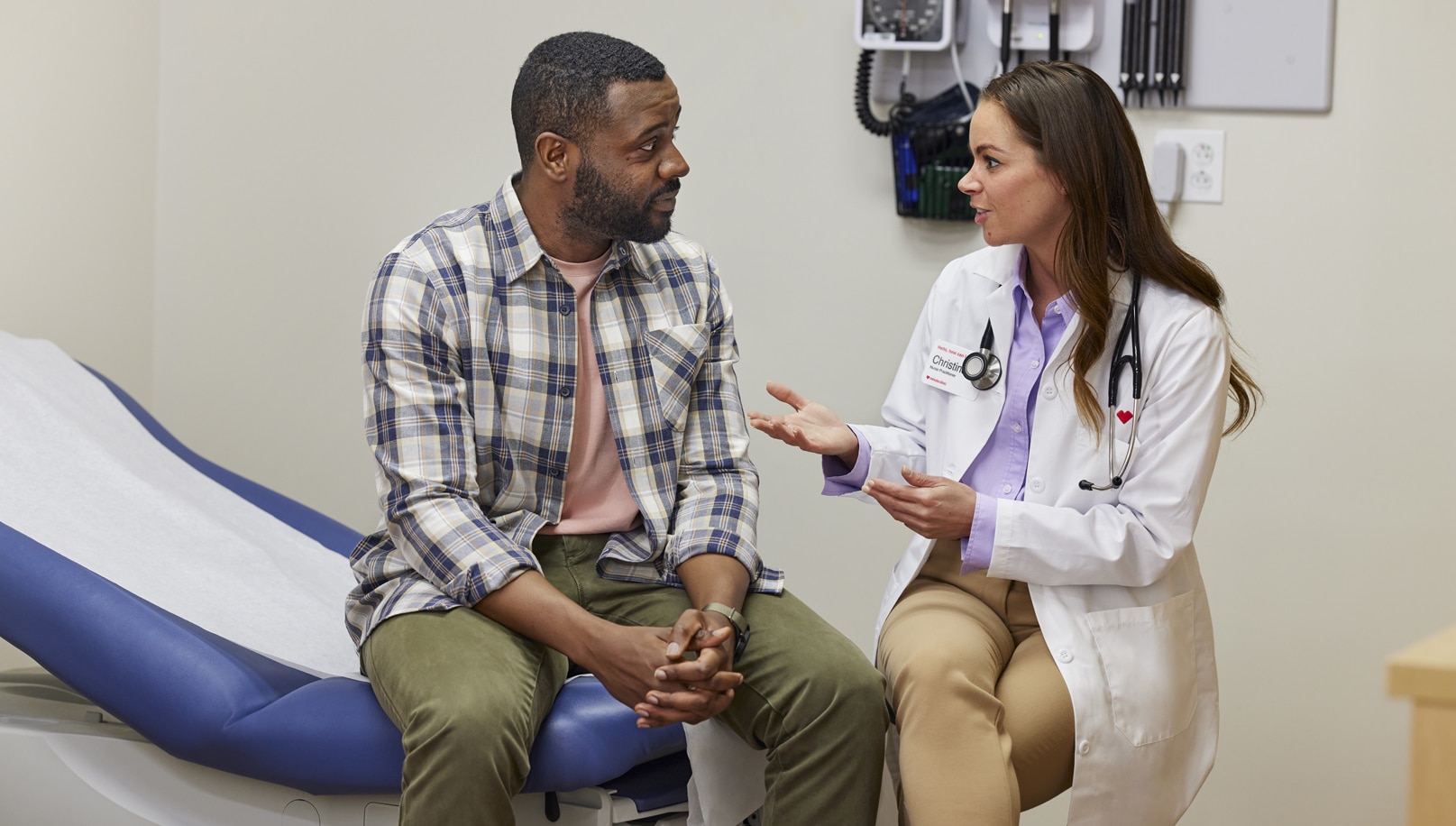Tuberculosis (TB) test
Tuberculosis (TB) is an infectious disease that primarily affects the lungs. Below, we’ll cover what you need to know about TB testing and how we can help you get started.
Find care
We offer services at MinuteClinic

Insurance and pricing
Most insurance accepted. Check your coverage or estimate the cost of your visit if you’re uninsured or prefer to pay out-of-pocket.
Have questions about getting a TB test? Here are the basics.

What is tuberculosis?
Tuberculosis (TB) is an infectious disease that primarily affects the lungs. Although the number of infections in the U.S. has declined since 1993, it remains a concern. Many strains of tuberculosis are resistant to the drugs used to treat it. People with active tuberculosis infections need to take several types of medication for months to eradicate the disease and prevent further development of antibiotic resistance.
The bacteria that cause tuberculosis spread in microscopic droplets released into the air via coughing and sneezing. Transmission can happen when a patient in the untreated, active state of tuberculosis coughs, laughs, sneezes, speaks, spits or takes any action that involves breathing air out from the lungs. Most people with active TB who receive appropriate medical treatment for at least two weeks are no longer contagious.
Where can you get a tuberculosis test?
People who need a TB test for work or who are at a higher risk of infection can easily be tested at their nearest MinuteClinic® location.
What is a tuberculin skin test?
The tuberculin skin test (TST) is a screening test for TB. Its process has two parts: the placement, and the reading.
An alternative to the TST is a blood test, called the Quantiferon-Tb Gold test. Both this test and the TST are screening tests.
Getting help
Your MinuteClinic provider will review your medical history, inject the tuberculin skin test and arrange your follow-up visit for the results assessment.
- You will answer a few questions about symptoms to help us prepare for your visit prior to scheduling your appointment.
- The check-in process varies depending on how you scheduled your appointment:
If you made your appointment online:
Check in using the email or text message we sent to confirm your appointment. If you prefer to check in using the electronic kiosk, make sure you have your confirmation code.
If you made your appointment in the clinic:
Sign in at the electronic kiosk.
- When it's time for your appointment, a provider or other staff member will call your name.
- Your provider will conduct a thorough examination based on your reason for visiting, presenting symptoms and health history. Charges will be based on examination and services provided
during the visit.
- After your visit, your provider may provide you with a summary. Otherwise, a visit summary will be available for you online.
TB symptoms, types and travel risks
Many patients who develop a TB infection experience some of the following symptoms:
- Chest pain or pain during breathing or coughing
- Chills or night sweats
- Chronic coughing lasting three weeks or more
- Coughing up blood
- Fever
- Loss of appetite
- Unexpected weight loss and fatigue
Tuberculosis can also affect other parts of the body, including the brain, kidneys or spine. When TB occurs away from the lungs, symptoms will vary according to the organs affected. For example, tuberculosis in the kidneys may lead to blood in your urine. If it’s in the spine, it may produce back pain.
Although the body may harbor the bacteria that cause TB, the immune system usually can prevent you from becoming sick. There are two distinct states of tuberculosis infection:
- Active TB: This state causes illness and is contagious in most cases. It may occur in the first few weeks following infection with the TB bacteria, or it could happen years later.
- Latent TB (inactive TB or TB infection): You’re infected, but the bacteria remain dormant and cause no symptoms. Latent TB is not contagious. If untreated it can become active TB.
The risk of contracting tuberculosis increases for people either living in or traveling to areas with high incidences of tuberculosis, including:
- Africa
- Asia
- Caribbean islands
- Eastern Europe
- Latin America
- Russia
TB prevention and testing
TB is only contagious in its active state when it affects the lungs. Treating and preventing latent TB from becoming active can stop tuberculosis transmission to others. There are a few ways to help prevent the spread of TB:
- Isolate yourself. Stay home from work or school. Sleep alone in a room during the first few weeks while active tuberculosis is treated.
- Use a tissue to cover your mouth when coughing, laughing or sneezing: Place the dirty tissue in a bag, seal it and throw it away.
- Ventilate the room. Tuberculosis germs are more likely to spread in small, enclosed spaces where air stagnates. Refresh the room air by opening windows and using a fan to blow indoor air outside.
- Wear a mask. During the first three weeks of treatment, reduce transmission by wearing a surgical mask while you’re near other people.
IMPORTANT! PLEASE READ: This material is for reference only and should not be used to determine treatment for specific medical conditions. Please visit a health care provider for evaluation, diagnosis and treatment of any symptoms you may be experiencing. If you're experiencing a medical emergency, please dial 911 or visit your local emergency department.
REFERENCES USED AS SOURCES FOR THIS PAGE:
-
1Testing for Tuberculosis via CDC. (Accessed 27th August 2024)
-
2TB (Tuberculosis) Tests via WebMD. (Accessed 27th August 2024)
-
3Tuberculosis via Mayo Clinic. (Accessed 27th August 2024)